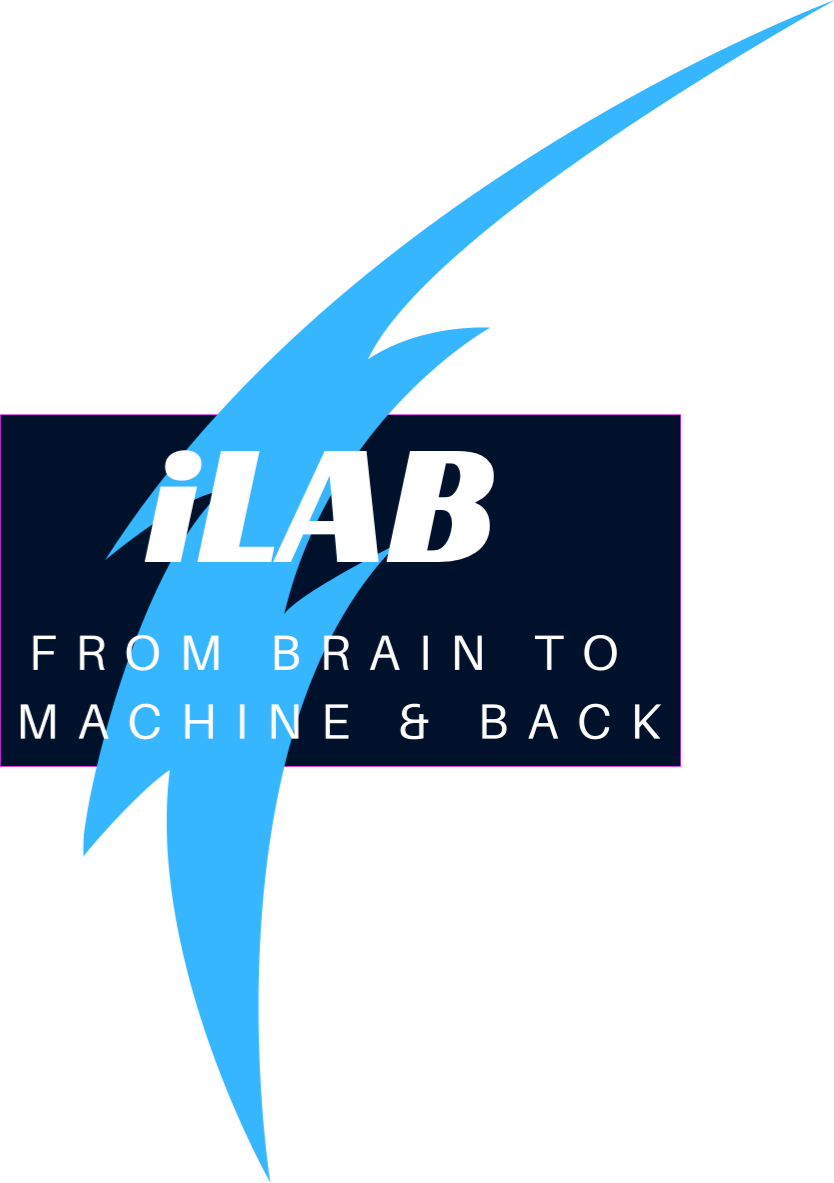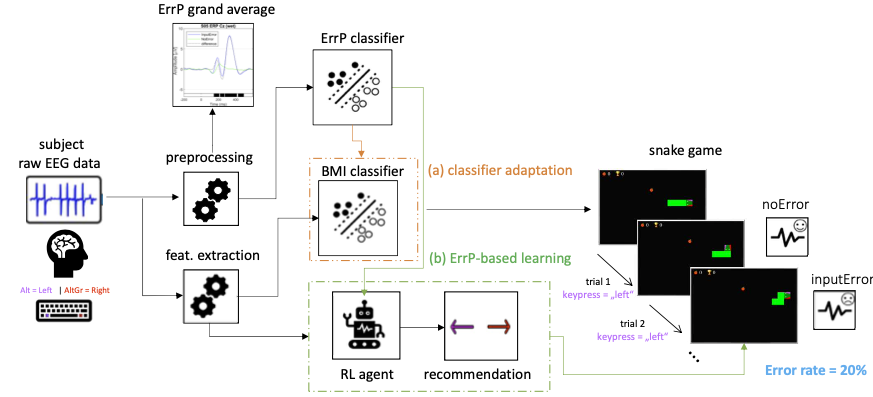Closed-loop adaptation of brain-machine interfaces using error-related potentials and reinforcement learning
- Aline Xavier Fidêncio1, 2, 3 , Christian Klaes1 , Ioannis Iossifidis2
- University Hospital Knappschaftskrankenhaus, Ruhr University Bochum, Bochum, Germany
- Institute of Computer Science, Ruhr West University of Applied Sciences, Mülheim an der Ruhr, Germany
- Faculty of Electrical Engineering and Information Technology, Ruhr University Bochum, Bochum, Germany
Neurorehabilitation devices can be used to help patients restore the lost mobility of upper-body limbs caused, e.g., by a spinal cord injury or a stroke. Unfortunately, not only can long calibration sessions be required, but also a decrease in decoding performance can be observed over time. Systems that, by overcoming these limitations, can adapt to the individual patient’s intentions and needs become, therefore, of particular relevance.
Research on brain-machine interfaces (BMIs) has shown increased interest in integrating the so-called error-related potentials (ErrPs) to improve system performance. ErrPs reflect the event-related potentials associated with error processing and performance monitoring in the human brain and are known to be elicited as a response to self-made and external errors committed, for example, by the BMI. As they are implicitly generated and do not impose any extra workload on the subject, they provide an intrinsic and natural source of feedback for the development of adaptive BMIs. On the other hand, their effective use depends on their accurate detection, which is a limitation in the existing ErrP-based BMIs.
We have evaluated the occurrence of interaction ErrPs, expected during human-machine interactions when the BMI deliberately misinterprets the user’s intention and executes the wrong command. Using a simple keyboard-controlled game, we recorded data from 6 healthy subjects using a dry EEG system with 32 electrodes. Given the difficulties in obtaining a clear ErrP signal for all subjects in previous experiments, we included a recording with a gel-based EEG to evaluate whether the low signal-to-noise ratio of the dry system was an issue. The comparison shows that measured ErrPs displayed a similar waveshape in terms of observed peaks as expected, but differences in latencies and amplitude are visible. The single-subject analysis shows that while undergoing the same experimental task, a prominent ErrP is not clearly detectable for all subjects. This observation suggests that it is not entirely clear what the ratio between the occurrence of a prominent ErrP and its detection is. From the learning perspective, we evaluate the boundary conditions for effective ErrP detection to establish the minimum threshold for the error classification to drive learning and adaptation in BMI systems.
Acknowledgements
This work is supported by the Ministry of Economics, Innovation, Digitization and Energy of the State of North Rhine-Westphalia and the European Union, grants GE-2-2-023A (REXO) and IT-2-2-023 (VAFES).

